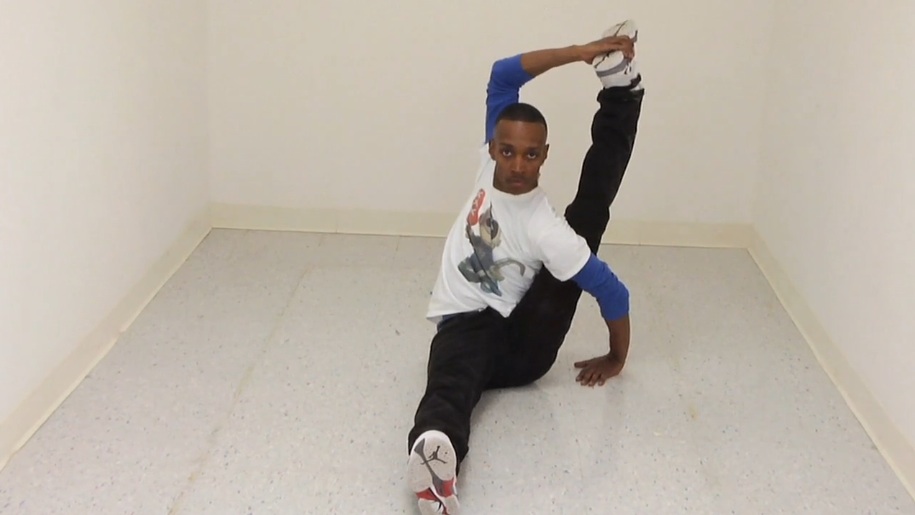
Rashaad Newsome, still from "Untitled (New Way)," 2009. Silent single channel HD video; 6:48 min. Collection of the artist; courtesy Ramis Barquet, New York.
My partner and I throw a monthly gay dance night in Cambridge with some DJ friends of ours. For 10 months, most dancing has been reserved for the last hour of the party, when the line for the bar has lessened and patrons are at their least inhibited. This month, that hour was marked by a small crew of thin, glamorously hooded men voguing on the dance floor and using the bar’s bathroom hallway as a runway.
The giant smile across my face was due not only to the fact that the entire display was intensely fierce, but because I couldn’t help but wonder if Rashaad Newsome had anything to do with it. If Madonna is the first star to bring voguing to the masses, Newsome is certainly the second. One of two videos featured in the 2010 Whitney Biennial, Untitled (New Way) (2009) features a dancer voguing for the camera in a small gallery space, performing movements taken from footage of several vogue dancers, which Newsome edited to choreograph into a new dance.
In March, the Whitney staged FIVE, a performance organized by Newsome, which included several vogue dancers whose movements were recorded in a live action drawing generated by real time video processing software. Based on the five essential components of voguing (“Hands,” “Cat Walk,” “Floor Work,” “Dip Spins,” and “Duck Walking,” as described by Newsome), the performance was separated into just as many “acts.” Each featured different choreography and musical score, including both an MC and a chamber orchestra, richly conflating ideas of cultural and historical contextualizations. In a statement on his Vimeo site, Newsome says of the performance, “FIVE encapsulates three core approaches I apply to my art practice: exploring the formation, evolution, adoption, and ownership of cultural signifiers; capturing the essence of historic art structures using modern urban symbolism and cultural references, particularly in the form of expression; and leveraging technology to elicit my artistic expression. ”
Paris is Burning, the seminal film about New York voguing balls, drag queens, and transgendered people of color in the mid to late ’80s, keenly documents the emphasis on “realness,” or the extent to which each competitor’s persona — whether butch or femme — appears authentic. Newsome’s work is wholeheartedly real, and his work eloquently brings to light cultural histories long relegated to the dusty shelves of subverted gay culture, doing so with the same confrontational elegance captured by the vogue dancers themselves. Work!
[youtube:https://www.youtube.com/watch?v=ydA7-qCv570]